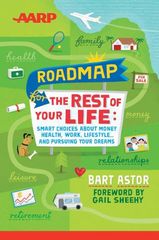Last summer I wrote a blog about working with potential lenders to allow mortgage lenders to use retirement assets to qualify. It was possible, but we had to work very hard to convince our lender to allow IRA or 401(k) distributions toward our total income. We had to sign a statement with the retirement account holder promising to take monthly distributions. That way the lender saw the necessary monthly income. Of course, we didn’t have to keep that promise once the loan closed, but that’s a whole other matter (in our case we didn’t need to get the distributions because our income was sufficient—and in fact, because we were refinancing, it was actually lowering our monthly nut.
Likely because there are a lot of us in this position, that is, high assets but low income, Freddie Mac, the government sponsored entity that guarantees mortgages, now lets lenders take retirement account assets into consideration when applicants seek to refinance or purchase a home. That is wonderful news for so many 50+ people. Many of us have cut down our working hours, or even totally retired. But we are financially sound and have sufficient funds to buy or refinance a home. Ironically, for those refinancing, it might even lower our expenses, as it did for us. But the way lenders work, it doesn’t appear that way. Or at least it hadn’t. You had to show “Work-related” income to qualify for a mortgage.
This new ruling will help so many people who are either stuck in an old, high-interest rate mortgage that they could refinance at better rates, or buy a new home as they choose to downsize.
Let’s applaud whoever got enlightened at Freddie Mac. And if you are in this boat, look for a lender who uses Freddie Mac as its guarantor. There are 2000+ lenders who work with them so I’m sure you’ll be able to find a good one for you.
Likely because there are a lot of us in this position, that is, high assets but low income, Freddie Mac, the government sponsored entity that guarantees mortgages, now lets lenders take retirement account assets into consideration when applicants seek to refinance or purchase a home. That is wonderful news for so many 50+ people. Many of us have cut down our working hours, or even totally retired. But we are financially sound and have sufficient funds to buy or refinance a home. Ironically, for those refinancing, it might even lower our expenses, as it did for us. But the way lenders work, it doesn’t appear that way. Or at least it hadn’t. You had to show “Work-related” income to qualify for a mortgage.
This new ruling will help so many people who are either stuck in an old, high-interest rate mortgage that they could refinance at better rates, or buy a new home as they choose to downsize.
Let’s applaud whoever got enlightened at Freddie Mac. And if you are in this boat, look for a lender who uses Freddie Mac as its guarantor. There are 2000+ lenders who work with them so I’m sure you’ll be able to find a good one for you.

 RSS Feed
RSS Feed
